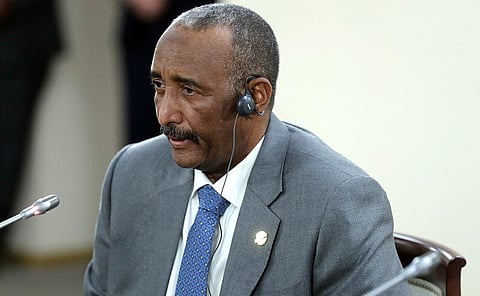

The Sudanese army has reclaimed the presidential palace in Khartoum, marking a significant symbolic victory in the country’s ongoing civil war against the paramilitary Rapid Support Forces (RSF). The palace, a historic seat of power, had been a key battleground in the conflict that has devastated the nation since April 2023.
Palace Retaken Amid Ongoing Conflict
Videos circulating on social media showed Sudanese soldiers, armed with assault rifles and rocket-propelled grenade launchers, inside the partially ruined palace. A military officer, identified by his captain’s epaulettes, confirmed the takeover in a video statement, declaring that troops had secured the compound. Sudan’s Information Minister, Khaled al-Aiser, also announced the recapture on X (formerly Twitter), writing, “Today the flag is raised, the palace is back, and the journey continues until victory is complete.”
The Republican Palace, a sprawling complex along the Nile River, has long been a symbol of Sudanese governance. It served as the seat of government before the war and is featured on the country’s banknotes and postage stamps. Its recapture represents a strategic and morale-boosting gain for the Sudanese military, which has made steady advances in recent months under the leadership of army chief Gen. Abdel-Fattah Burhan.
The RSF, led by Gen. Mohammed Hamdan Dagalo, has not publicly acknowledged the loss. However, the group and its allies still control significant territory elsewhere in Sudan, particularly in the western Darfur region, suggesting that the conflict is far from over. The war has already claimed over 28,000 lives, displaced millions, and triggered a severe humanitarian crisis, with reports of famine in some areas.
A Historic Site Amid a Devastating War
The Republican Palace holds deep historical significance. It was the seat of power during British colonial rule and witnessed the raising of Sudan’s first independent flag in 1956. Later, it became the official office of Sudan’s president and top government officials. Its recapture by the military underscores the shifting dynamics of the conflict, which has seen the RSF expelled from much of Khartoum after initially seizing large parts of the capital at the war’s outset.
Despite this victory, the RSF remains a formidable force. The group has consolidated control in Darfur, where it is reportedly establishing a parallel government in areas under its control. This move could deepen the country’s de facto partition, complicating efforts to achieve a lasting peace. On Thursday, the RSF claimed to have seized al-Maliha, a strategic desert city in North Darfur near the borders of Chad and Libya. While the Sudanese military has acknowledged fighting in the area, it has not confirmed the loss of the city.
A Nation in Crisis
Sudan’s descent into civil war follows years of instability. A popular uprising in 2019 ousted longtime autocrat Omar al-Bashir, but a brief transition to democracy was derailed by a military coup in 2021 led by Burhan and Dagalo. The two generals later turned on each other, plunging the country into war in April 2023.
The conflict has created what the head of the U.N. children’s agency has called the world’s largest humanitarian crisis. Millions have been displaced, and famine has forced some families to resort to eating grass to survive. The International Criminal Court has charged al-Bashir with genocide for his role in the early 2000s Darfur conflict, and rights groups accuse the RSF and allied militias of targeting ethnic African groups in the current war.
While the recapture of the Republican Palace is a significant milestone for Sudan’s military, it is unlikely to bring an immediate end to the war. The RSF’s continued control of key regions and its efforts to establish a parallel government suggest that the conflict will persist, further destabilizing an already fractured nation.